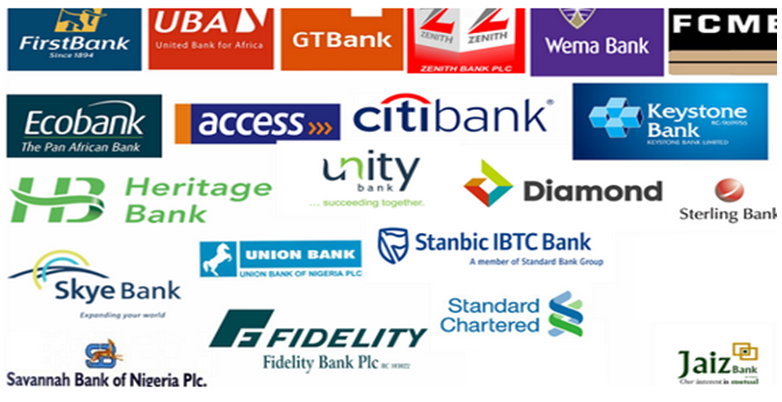For millions of Nigerians, banking has become less of a financial convenience and more of a burden—one quietly but persistently draining their pockets.
From ATM withdrawals to mobile transfers, every interaction with the banking system seems to come with a charge, often undisclosed or poorly explained.
In a country grappling with rising inflation and economic hardship, these cumulative deductions are deepening financial stress, especially for low and middle-income earners.
Take the case of Shina Dare, a Lagos-based school teacher. When he recently transferred N5,000 to her brother at Kogi State University via his mobile app, hhe was charged a N10 transfer fee.
His brother, withdrawing the cash from an ATM outside his bank’s network, incurred an additional N100 fee. Had he used a POS agent, it could have cost him between N300 and N500, depending on location. By the end of the transaction, the original N5,000 had effectively shrunk to about N4,600.
These charges—though appearing minor in isolation—accumulate into a financial burden. Most customers remain unaware of the full extent of these deductions until they notice a dwindling balance or unexplained debits.
Common fees include: nAccount maintenance fees: N50/month for savings accounts, N1 per N1,000 on current accounts; Electronic transfer fees: N10–N50 depending on the transaction size; ATM withdrawal fees: N35 after the third monthly withdrawal; SMS alert charges: N7 per message, even when no alert is received; USSD charges: N6.98 per transaction session; Stamp duties: N50 for electronic transfers above N10,000 and Cybersecurity levies: 0.005% on all electronic transactions
According to Dr. Nnaemeka Udeh, a financial economist and former CBN consultant, “Banks rely on widespread ignorance. Many customers have never read the Central Bank’s Guide to Charges, and even fewer understand how the deductions work. This gives banks a free pass to implement fees that are legal on paper, but exploitative in practice.”
The Central Bank of Nigeria (CBN) recently updated charges related to Automated Teller Machine (ATM) withdrawals. On-site withdrawals—at bank-owned ATMs outside branches—now attract N100 per N20,000. Off-site withdrawals in malls or airports can incur up to N600 per N20,000 transaction.
Card-related fees are also rising. Debit card maintenance for savings accounts stands at N50 per quarter, while credit card issuance or renewal costs N1,000. Internet banking hardware tokens, commonly required for large transactions, cost N2,500.
In a move that initially triggered public backlash, the CBN introduced a cybersecurity levy of 0.5 per cent. Following criticism from civil society and lawmakers, the bank revised it to 0.005%—meaning N0.50 on a N10,000 transaction or N5 on N100,000. Still, consumer groups argue the charge adds to the already heavy cost of digital banking.
For small business owners like Mr. Ogunbona, a Lagos trader who processes frequent payments, these charges significantly erode profits. “Every transaction I do—POS payments, transfers, bill payments—there’s always one fee or the other. Sometimes it feels like I’m working for the bank,” he lamented.
What’s worse is the ripple effect. When Ogunbona’s suppliers receive the money, they too face deductions for their own transactions—each charge cutting into the original value.
“This is not just about fees; it’s about financial exclusion,” says Zainab Okonjo, a consumer rights advocate. “For someone earning N30,000 a month, losing N2,000 to fees is a big deal. It’s discouraging people from using banks altogether.”
In response to the rising cost of banking, digital platforms and neobanks such as Moniepoint and Opay are gaining traction. These fintech players offer lower fees, faster service, and greater accessibility—particularly for small merchants and unbanked populations.
“With Moniepoint, I pay ₦20 per transfer and only ₦100 for large withdrawals,” says Mr. Adewale, a shop owner. “I used to queue at the bank, now I don’t bother. Everything is done from my phone or POS.”
This trend is reshaping Nigeria’s payment landscape. Traders in open markets and shopping malls are increasingly turning to fintech providers who offer more transparent pricing and user-friendly platforms.
The CBN’s Guide to Charges by Banks, Other Financial and Non-Bank Financial Institutions mandates transparency and caps on fees. Financial institutions found to breach these rules can be fined up to N2 million per infraction. However, enforcement remains weak.
“In theory, the regulations are strong,” says Dr. Bamidele Ajayi, a lecturer in Banking and Finance at the University of Lagos. “In practice, banks bend the rules and customers have limited avenues for redress.”
For instance, many customers are charged for intra-scheme transfers without consent or made to pay for alerts never received. Under the CBN’s cashless policy, individuals withdrawing over N500,000 face a 3% charge, while businesses withdrawing over N3 million pay 5%—further discouraging large transactions.
As economic pressures rise, Nigerians are increasingly questioning the value of keeping money in traditional banks. With high fees, shrinking account balances, and opaque deductions, many wonder whether banks serve them—or serve off them.





